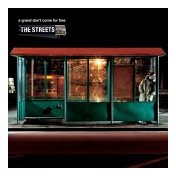The concept of irony is oft misused. Because this happens to be a pet-peeve of mine, I've been attempting to educate my friends on the subject. Thanks to my campaign, they now look over their shoulders to see if I'm around before calling anything ironic. Admittedly, this is not exactly the result I was going for... but it's a start.
A thorough entry here seems like a good way to reach a broader audience — and if even one of you thinks twice the next time the word "ironic" comes to mind, then the world will be a better place. So — let's set the record straight.
Several different concepts fall under the umbrella of irony, and this is, perhaps, one source of confusion. The concept I will focus on here is called situational irony1. From now on, whenever I say "irony," I'm referring specifically to situational irony. When I say something is "NOT IRONIC," though, I'm probably talking about irony in general. OK... that said, here we go.
Situational irony is the type of irony you are most likely to come across — or use — in conversation. As used here, situational irony is defined as:
- i‧ro‧ny
- Incongruity between what might be expected and what actually occurs.
It sounds harmless, I know. The big issue, in my experience, is that the concept of situational irony is often confused with that of coincidence.2 As used here, coincidence is defined as:
- co‧in‧ci‧dence
- A sequence of events that, although accidental, seems to have been planned or arranged.
Pay close attention now, because this is where it gets confusing. To call a fact or event ironic is to make a statement about the relationship between the actuality of a fact or event and one's expectations regarding that fact or event. To call a fact or event coincidental, on the other hand, is to make a statement about the relationship between that fact or event and another, independent fact or event.
I know it sounds confusing, but it really isn't. Consider the situation described below as an example of what I'm talking about.
Person A and Person B are driving; they approach an intersection at which there is a traffic light, and collide.
Bystander C reports the accident, and Police Offer D arrives at the scene shortly. D finds that while B is clear and coherent, A is fairly tipsy.
Based on this information, D makes the following statment to C: "Well, it's pretty clear what happened here. Drunk drivers... what a menace."
As it turns out, though, B is as much to blame as A. B was not paying attention, and ran the light when it was red; alcohol-impaired as he was, A could not stop in time to avoid the accident.
C, having witnessed the collision, responds thus to D's statement: "Ironically, officer, B is as much to blame as A. It's really an unfortunate coincidence that B ran the light right in front of a drunk driver."
So... raise your hand if you followed that. Ooooookay, I'll explain. C knows what he's talking about (har har har). Because A was drunk, one would expect the accident to have been entirely his fault. The actuality of the event — the fact that B is also to blame — is incongruous with the expectation, and is thus ironic. What one must keep in mind, however, is that B's crime (running the red light) and A's (driving drunk) were completely independent events that happened to interact in an unexpected way — quite a coincidence.
See? It's easy. For another simple example, check out this quote from the homepage of Purity Ice Cream:
Purity's home office is located in Ithaca NY, ironically the birthplace of the American ice cream sundae.
Purity is an ice cream company based in Ithaca, NY? Fact. Ithaca, NY is the birthplace of the American ice cream sundae? Fact. The relationship between the two? Coincidence. Coincidence. Coincidence.
And for some reason, people never call ironies coincidental. It is a one-way mistake. No, I don't get it either, but here's a little trick. Next time you are about to say "Gee, that's ironic.", do me a favor and think first. Ask yourself: "Gee, is that coincidental?" If the answer is "yes," then it is probably NOT IRONIC.
Now for a more advanced example (my personal favorite) — the song "Ironic," by Alanis Morissette. "Isn't it ironic?", asks Alanis. "No, it isn't.", answers Drag Reduction.
To fully appreciate this blasphemy, I recommend checking out the complete lyrics. There is a relatively good copy available here. Below are some choice examples of Alanis' little "ironies":
1. A death row pardon, two minutes too late;
2. Rain on your wedding day;
3. A free ride when you've already paid;
4. A traffic jam when you're already late; and
5. Ten thousand spoons when all you need is a knife.
These are only five of the many events Ms. Morissette uses as examples of irony in her song, and with maybe one minor exception,3 they just aren't. They're not necessarily coincidental (although most are), but that doesn't mean they are ironic.
But here's a little meta-irony for you. In a song entitled "Ironic", Ms. Morissette gives numerous examples... none of which are ironic. Isn't that ironic? Yes. Yes it is.4
1 The wonderful Wikipedia has an excellent entry on irony here.
2 Dictionary.com has an interesting "usage note" on this issue here.
3 The plane crash might qualify as ironic, if properly interpreted. Maybe.
4 Apparently I'm not nearly the first person to point this out. Wikipedia has an entry on Alanis' "Ironic", describing the whole situation in great detail.
